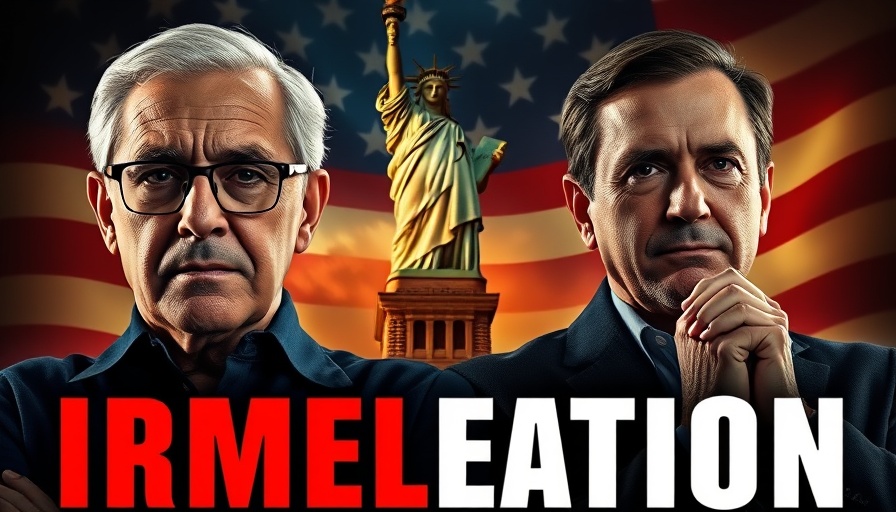
America's Civilizational Moment: A Call to Faith
In today's cultural climate, the question of America's future looms large, prompting many to wonder: Is the West at a civilizational crisis point? Author and thinker Os Guinness, in his recent book Our Civilizational Moment, argues emphatically that without a reawakening of the Christian faith, the West is on a path toward decline. This sober acknowledgement arises from his unique perspective—being born in China during a tumultuous period and shaped by the realities of war, famine, and the complexities of ideologies like Marxism.
In 'Is America Doomed? Os Guinness Speaks Out,' we explore the urgent call for faith renewal in America's civilizational moment.
History's Warning Signs
Guinness points out that every civilization, if it loses touch with its foundational values, risks fading into history. The respective histories of great civilizations serve as stark reminders. The current disarray in Western society parallels what has happened in cultures throughout time, as foundational principles were abandoned in favor of fleeting ideologies. For the West, the Christian faith has been central to its development; repudiating this suggests a looming decline, unless the church and society at large revitalize its commitment to these values.
The Urgency of Faith
Why does faith hold such significance during a civilizational moment? History reveals that civilizations thrive when they posit their existence within the frameworks of core beliefs—a spiritual foundation. Guinness emphasizes that the neglect of this aspect has led to secularism dominating contemporary discourse. Faith cannot simply be relegated to personal experience; it demands a public presence that informs culture, ethics, and community. The prevalent view of secularism today, which renders faith as subjective, leads to a void—an absence of guiding principles in public life.
Pursuing Public Engagement
Faith needs to re-enter the public square. The American church, in many respects, must reclaim its voice to impact national conversations on ethics and morality. A deeper engagement with societal issues, including race and historical legacies, hinges not merely on private belief but on an active, public demonstration of faith’s relevance. According to Guinness, many Christians must recover their public role and influence in political and social discussions, countering the criticisms leveled against faith in public affairs.
Navigating Complex Ideologies
Guinness outlines several threats resulting from cultural Marxism, the sexual revolution, and radical Islamism—each shaping the American landscape in ways that challenge the Christian worldview. Recognizing these movements’ historical context evokes a clearer understanding of their intentions. While some envision healing in a diverse society, these ideologies often seek to subvert traditional values that have sustained Western civilization, creating further division and confusion.
A Creative Minority for Change
In this civilizational moment, Guinness asserts that either a “creative minority” or a “remnant” of faithful Christians will shape the future of the West. This group must reclaim the cultural, political, and social influence previously held by Christians, leveraging their collective capabilities. Every believer operates within spheres of influence—be it their family, workplace, or local community—and it's here that change can begin. Practical steps involve personal witness and intentionality: daily worship, engagement in community issues, and thoughtful living rooted in Christ’s teachings.
Faith and Citizenship
Politics may not carry the most critical weight in Christian life, but it plays a significant role in public witness and service. Guinness advocates for a robust understanding of civic responsibility, suggesting that a failure to engage politically goes against the intrinsic call for Christians to be stewards of society. Drawing from historical precedents, he contends that, while the church may feel weakened, it possesses the power to influence change through active participation rather than retreating into isolation. Challenging believers to examine their influence afresh, he encourages engagement with integrity and purpose, nurturing the health of America’s future.
Conclusion: A Call to Action
Guinness’ insights serve as both a warning and a call to action. For Christians and seekers alike, the path forward requires a balanced approach, melding inward reflection with outward action—a duality essential for spiritual vitality and societal health. The fate of America and the broader West indeed lies within the hands of its believers. As we reflect on these themes, we should fervently pray and act, ensuring that our faith shapes the communities we inhabit.
 Add Row
Add Row  Add
Add 








 Add Row
Add Row  Add
Add 

Write A Comment